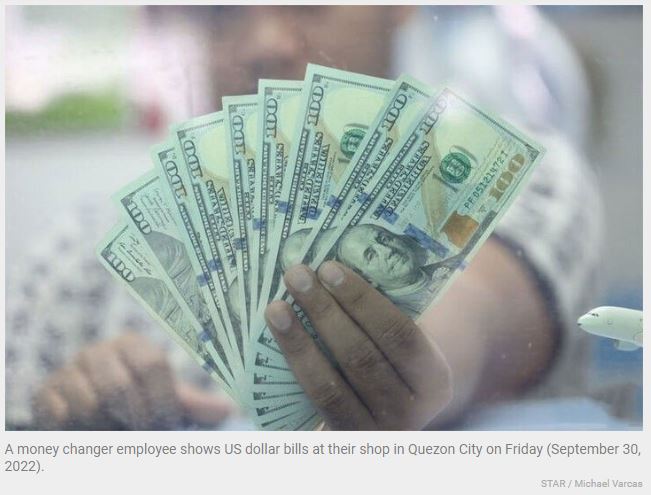Philippines: Currency weakness to heighten crisis in food, energy – World Bank
MANILA, Philippines — The depreciation of currencies in developing economies may exacerbate the food and energy crisis, according to the World Bank.
In its Commodity Markets Outlook report, the World Bank said that while most commodity prices have gone down from their recent peaks amid concerns over a looming global recession, prices in local currency terms remain elevated in many economies due to currency depreciation.
It said the price of Brent crude oil in US dollars fell nearly six percent from February to September this year, but almost 60 percent of oil-importing emerging market and developing economies saw an increase in domestic-currency oil prices during this period.
Almost 90 percent of these economies also saw a larger increase in wheat prices in local currency terms compared to the increase in US dollars.
“As a result, commodity-driven inflationary pressures in many countries with depreciating currencies may be more persistent than indicated by recent declines in global commodity prices,” the World Bank said.
Pablo Saavedra, the World Bank’s VP for Equitable Growth, Finance, and Institutions, said further increases in world food prices could prolong the challenges of food insecurity across developing countries.
“An array of policies is needed to foster supply, facilitate distribution and support real incomes,” he said.
In the Philippines, the peso has been depreciating and closed at its lowest level of P59 to $1 several times this month.
The World Bank said energy prices, which have been volatile since the war in Ukraine, are expected to decline by 11 percent next year, after surging by about 60 percent this year.
Despite this moderation, the World Bank said energy prices next year would still be 75 percent higher than their average over the past five years.
It said the price of Brent crude oil is seen to average $92 a barrel next year, above the five-year average of $60 a barrel.
The World Bank said agricultural prices are also expected to decline by five percent next year to reflect better-than-projected global wheat crop, stable supplies in the rice market and the resumption of grain exports from Ukraine.
Risks to the commodity price outlook include supply concerns in the energy market.
The World Bank said higher-than-expected energy prices could feed through to non-energy prices, especially food, prolonging challenges associated with food insecurity.
A sharper slowdown in global growth also presents risks.
“The combination of elevated commodity prices and persistent currency depreciations translates into higher inflation in many countries,” Ayhan Kose, director of the World Bank’s Prospects Group and EFI chief economist, which produces the Outlook report said.
Last month, inflation in the country accelerated to a four-year high of 6.9 percent on the back of faster food price upticks.
Economists have said inflation in the country is still expected to pick up given the latest increase in transport fares as well as supply disruptions due to recent storms.
Average inflation for the January to September period is at 5.1 percent, above the Bangko Sentral ng Pilipinas’ (BSP) two to four percent target.
“Policymakers in emerging market and developing economies have limited room to manage the most pronounced global inflation cycle in decades. They need to carefully calibrate monetary and fiscal policies, clearly communicate their plans, and get ready for a period of even higher volatility in global financial and commodity markets,” Kose said.
Last week, BSP Governor Felipe Medalla said the Monetary Board could raise interest rates by 50 to 75 basis points during the rate-setting meeting on Nov.17 to rein in inflation and stabilize the local currency.
Source: https://www.philstar.com/business/2022/10/28/2219734/currency-weakness-heighten-crisis-food-energy-world-bank


 English
English




